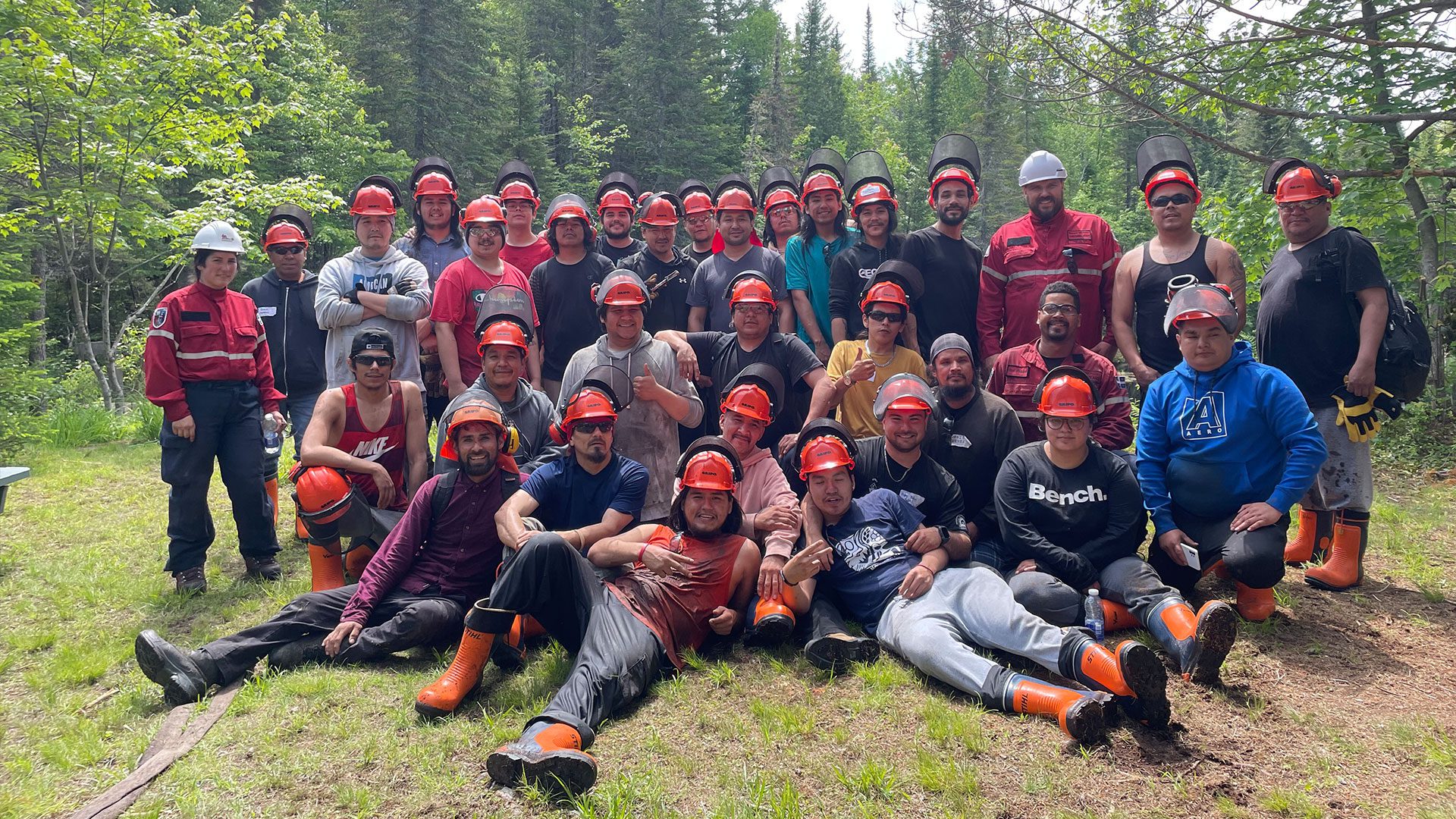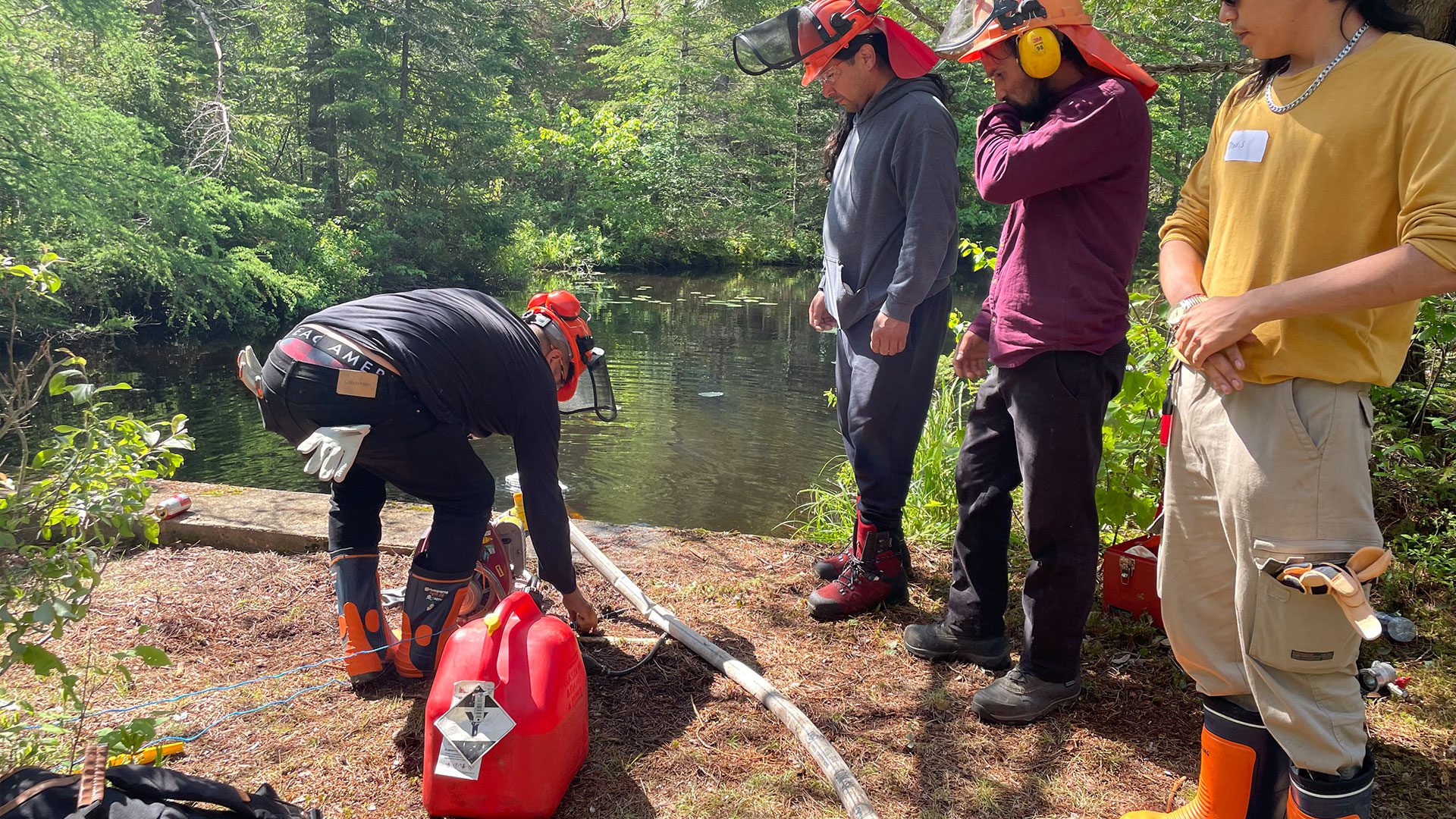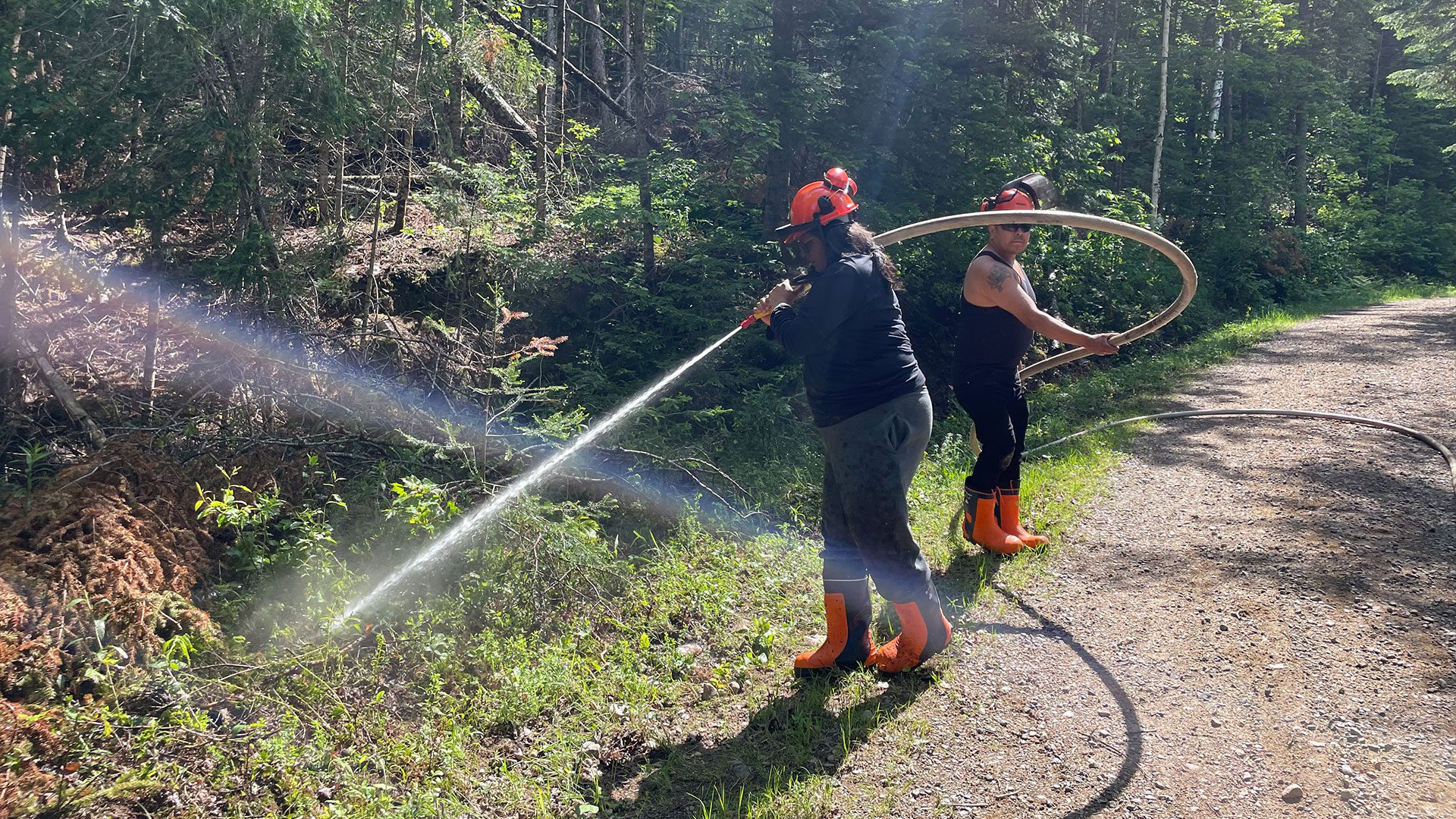After a close brush with Quebec’s forest fires, 32 Algonquins of Barriere Lake got the training needed to help fight the next ones.
SOPFEU, Quebec’s provincial firefighting force, conducted the training June 11-15 in Mont Tremblant, Que., one of Quebec’s major ski destinations, right after the community returned from its evacuation.
Amid the backdrop of the lush rolling hills and the loud hum of water pumps, the trainees ran down the path, spraying long stretches of forest with high-pressure fire hoses and yelling instructions at each other.
Warren Papatie, an Algonquin of Barriere Lake, was in Gatineau, Que., across the river from Ottawa, as fires approached his community of Rapid Lake, Que., 270 km north of Ottawa.
“I felt kind of emotional because everyone else was being emotional,” said Papatie. “They talk about the animals, they talk about the land. A lot of people hunt on the land so that is the emotion we carry from that, so it’s the reason why we’re here.”
The crew learned how to properly get onto a moving helicopter, pump water from a nearby source, coordinate multiple firehoses, cut high-pressure water and safety protocols.
As auxiliary combatants, these 32 Algonquins get to stay in their community but could be deployed across the province when they’re needed.
“There’s a lot of passion going on at the same time because people love the land and these guys are used to the land they’re used to the bugs and everything,” said Papatie.
Collaboration and communication are just as important as water to extinguish the flames.
Joshua Payet of the SOPFEU, Quebec’s provincial firefighting service, has been showing them how it’s done.
“When you’re in a very stressful situation, a lot of time things that are supposed to work very simply will not work just cause you’re stressing, your hands are shaking, things are going on around you,” said Payet.
“What I’m trying to get them to understand is just focus on what you’re doing, forget everything around, and if things are going too fast, slow down. Smooth is fast, fast is smooth.”
Algonquins of Lac-Simon and Pikogan wrapped up training with Payet the week before he came down to Mont Tremblant. After five years at the SOPFEU, Payet was very impressed by the Algonquin communities’ teamwork.
“They’re very eager, they’re very proud to be here, they really want to learn, they feel privileged to be here,” said Payet.
“They want to, like, prove to their communities they can fight these fires, so it’s really fun to see.”
Steve Wawatie, a member of the Algonquins of Barriere Lake band council, did the training two years ago and got recertified.
“It’s a good opportunity for these young guys, that’s who I was thinking about you know, giving them that chance to get out of the community and go places and meet people, you know, get some work experience,” said Wawatie.
He reached out to the SOPFEU to see if they could train rapid lake residents who wanted to help fight fires. He got a callback – two days before the training was supposed to start.
“At the same time, all this was happening, people were evacuating the community, then we had some community members stay back to try to save the community somehow. They tried to cut an open area so the fire doesn’t jump to the community, I guess,” said Wawatie.
The trainees also included one woman – Vicky Jerome, a 27-year-old mother of two.
“It’s been funny, all these dudes act like there’s no girl around,” she laughed.
“I’ve known all these guys my whole life so kind of just hanging out with friends and family, but I know I have support when I need it too,” she said.
Jerome evacuated with her sons when the fires approached.
“Not going to lie, it was pretty scary,” she said. “I wanted to help but I just didn’t have the knowledge to, but it motivated me a lot to come out here and take the initiative.”
She said she’s been gaining the knowledge to help fight fires the next time they come into the territory.
“I wanted to be a part of the firefighting and protecting our family land, our cabins, there’s so much history out on the territory, and I have kids and I want it to be safe for them.”
Read More:
Environment Canada warns of higher than normal temperatures this summer
Jerome said she felt reassured by SOPFEU’s safety protocols.
“It doesn’t seem as scary as I thought it was when I first got here,” said Jerome.
“When we’re on the ground, there’s somebody looking after us, and there’s someone looking after them and us, so there’s levels of it all.”
While the smoke has cleared from Rapid Lake, the fire season is only just beginning. But at least, now, the community will be more prepared for the fires that come.












